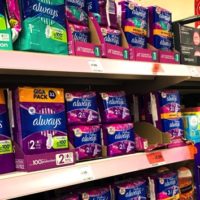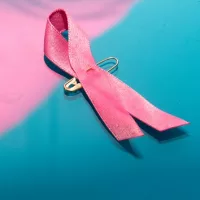
(SACRAMENTO, Calif.) — Beginning next school year, California public schools and colleges will be required to offer free menstrual products in restrooms under a new bill signed Friday by Gov. Gavin Newsom.
The bill, called the Menstrual Equity for All Act of 2021, applies to public schools serving students in grades six to 12, community colleges and the California State University System, according to the bill’s sponsor, Democratic Assemblymember Cristina Garcia.
“Our biology doesn’t always send an advanced warning when we’re about to start menstruating, which often means we need to stop whatever we’re doing and deal with a period,” she said in a statement. “Often periods arrive at inconvenient times. They can surprise us during an important midterm, while playing with our children at a park, sitting in a lobby waiting to interview for a job, shopping at the grocery store, or even standing on the Assembly Floor presenting an important piece of legislation.”
“Having convenient and free access to these products means our period won’t prevent us from being productive members of society, and would alleviate the anxiety of trying to find a product when out in public,” she said.
Garcia was also sponsor of legislation that was signed into law in 2017 that ensures low-income schools in California provide students with free menstrual products.
She said the new law that will provide free products to even more students was inspired by Scotland, which last year became the first country in the world to provide period products to all women for free.
“Just as toilet paper and paper towels are provided in virtually every public bathroom, so should menstrual products,” she said in a statement. “It is time we recognize and respond to the biology of half the population by prioritizing free access to menstrual products, and eliminating all barriers to them.”
Period poverty, when people cannot afford even the most basic of period supplies like pads and tampons, is an issue that affects women around the world.
At least half a billion women and girls globally lack facilities for managing their periods, according to a 2015 report from the World Health Organization and UNICEF.
Poor menstrual hygiene poses health risks for women, including reproductive issues and urinary tract infections.
The taboo around menstruation and the lack of access to menstrual products also hurts women economically because it costs them money for products and may keep them from jobs and school, advocates say.
In the U.S., where women make up more than half of the population, women are more likely than men to live in poverty, and they spend an average of 2,535 days in their lifetime, or almost seven years, on their periods, according to UNICEF.
A lack of access to menstrual products and education affects one in 10 college students in the U.S., according to a study released earlier this year.
Congress last year passed the Coronavirus Aid, Relief and Economic Security (CARES) Act that included a provision allowing people to use Health Savings Accounts (HSA) and Flexible Spending Accounts (FSA) dollars to buy menstrual products like pads, tampons, liners and menstrual cups.
Rep. Grace Meng, D-N.Y., who was instrumental in adding that provision, re-introduced earlier this year in Congress the Menstrual Equity for All Act of 2021, which would, among other things, require employers with 100 or more employees to provide free menstrual products and would require all federal public buildings to provide free menstrual products in classrooms.
Copyright © 2021, ABC Audio. All rights reserved.












